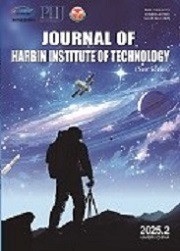|
| Abstract: |
| The mismatch of elasticity modulus has limited the application of titanium alloys in medical implants, and porous structures have been proved effective to deal with this problem. However, the manufacturing of porous structures has been restricted from conventional technologies. In this study, selective laser melting (SLM) technology was employed to produce a set of Ti-6Al-4V porous samples based on cubic lattices with varying size of strut width from 200 μm to 600 μm. Then the compression tests were conducted to analyze the influence of the strut width on the elasticity modulus and the ultimate strength. The result shows both of them increases linearly with the growth of strut width or with the decrease of porosity, and the elasticity modulus of porous parts is largely reduced and actually meets the requirement of clinical application. Additionally, a finite element model was established to verify the un-uniform stress distribution of porous parts. It reveals that fractures always initially occur at the vertical struts along the force direction which suffer from the main deformation. |
| Key words: selective laser melting Ti-6Al-4V porous structures elastic modulus stress |
| DOI:10.11916/j.issn.1005-9113.2016.02.007 |
| Clc Number:TP29 |
| Fund: |






